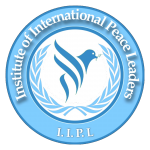Achieving UN Sustainable Development Goals 2030 in Pakistan: Challenges, Strategies, and Way Forward
A shared blueprint for peace and prosperity for people and the planet, now and into the future- The Sustainable Development Goals

The Sustainable Development Goals (SDGs), also known as the Global Goals, are a set of 17 interconnected goals adopted by the United Nations in September 2015 as part of the 2030 Agenda for Sustainable Development. These goals are designed to address a wide range of global challenges and to promote a more equitable, prosperous, and sustainable world by the year 2030. The 17 SDGs are interconnected, acknowledging that actions taken in one domain will affect the other areas and that development should strive to harmonize social, economic, and environmental sustainability[1].
These 17 goals are universal, meaning they apply to all countries, regardless of their level of development. They are interconnected and emphasize the importance of addressing social, economic, and environmental issues together to achieve a more sustainable and equitable world by 2030. The SDGs serve as a framework for governments, organizations, and individuals to work together to address pressing global challenges. To bring the 2030 Agenda to life, it’s crucial that widespread support for the SDGs results in a robust commitment from all parties to put the global goals into action. The Division for Sustainable Development Goals (DSDG) strives to assist in fostering this active participation and collaboration.
The United Nations High-Level Political Forum on Sustainable Development (HLPF), held every year under the United Nations Economic and Social Council, is responsible for monitoring the progress of the Sustainable Development Goals (SDGs). The global implementation of the Sustainable Development Goals (SDGs) commenced in 2016, a process often referred to as “Localizing the SDGs.” In 2019, the Secretary-General of the United Nations, António Guterres, called for a global initiative known as the “Decade of Action” with the aim of achieving the Sustainable Development Goals by 2030[2]. The “Decade of Action” is set to span from 2020 to 2030, with the plan being that the United Nations Secretary-General will organize an annual platform to facilitate and drive progress during this period
In 2016, Pakistan embraced the Sustainable Development Goals (SDGs) as its own national development agenda, affirming this commitment through a unanimous resolution in the National Assembly. Subsequently, significant strides have been made in the country, encompassing the integration of these objectives into national policies and strategies and the establishment of an institutional framework for implementing the SDGs[3]. Collaboratively, federal and provincial SDG support units, working in conjunction with planning institutions, have been established to provide guidance and oversee the progress of SDG initiatives.
Currently, Pakistan ranked 128/166 countries with an SDG index score of 59.0[4]. Pakistan’s present performance in education, healthcare, access to electricity, and water and sanitation, as indicated by the SDG indices in each sector, falls below the average for Emerging Market and Developing Economies (EMDEs)[5]. Furthermore, when considering countries with a GDP per capita below US$3,000, Pakistan’s performance in education and water and sanitation is also below the average. Given the backdrop of rapid population growth, Pakistan must intensify its efforts to make significant advancements in achieving the SDGs.
In 2018, the government endorsed a National SDGs Framework, emphasizing the prioritization and localization of these goals. Current endeavors are centered on the seamless integration of SDGs into the planning process, robust monitoring and reporting, the alignment of public finances with SDGs, exploration of alternative funding mechanisms, and the utilization of technology to expedite the achievement of SDG targets[6].
In the 2022 Spotlight report on Sustainable Development Goals (SDGs), it is stated that there is no significant progress in 10 out of 17 goals, while four goals demonstrate modest improvement. Interestingly, goals 12 (Responsible Consumption and Production) and 13 (Climate Action) have been marked as accomplished. However, the status of goal 10 (Reduced Inequalities) remains debatable due to increasing poverty and inequality[7]
Pakistan is actively pursuing its commitment to the 2030 Agenda by focusing on several key strategies. These include bolstering institutional frameworks, raising awareness, cultivating effective partnerships, and enhancing coordination efforts. A central element of its approach involves strengthening existing partnerships and forging new ones, harnessing the power of technology, and mobilizing financial resources. Pakistan recognizes the importance of collaborative efforts, involving a wide spectrum of stakeholders from government, the private sector, civil society, media, as well as regional and international support. Despite facing economic and financial challenges, Pakistan remains dedicated to achieving the SDGs through innovative, targeted, and well-defined strategies encompassing social, economic, and environmental dimensions[8]
Achieving United Nations Sustainable Development Goals (SDGs) Agenda 2030 by Pakistan
Pakistan’s strategy for achieving SDG targets involves several significant initiatives. These include a strong focus on enhancing human development, elevating the quality of public services, addressing regional disparities in infrastructure development, and revitalizing the economy to create ample employment opportunities for the educated and skilled workforce[9]. In the realm of climate action, Pakistan is committed to further reducing its carbon emissions and safeguarding the environment. This involves extensive tree-planting campaigns and expanding the nation’s forest cover to counteract environmental challenges.
Achieving the United Nations Sustainable Development Goals (SDGs) is a complex and long-term endeavor that requires collaboration from various sectors of society. To achieve sustainable development, three critical dimensions must converge and work in harmony: the economic, socio-political, and environmental aspects are all essential and intricately interconnected (Singh 2016). Here are some key steps Pakistan can take to work towards achieving the SDGs in 2023:
- Political Commitment and Policy Integration
The first step toward SDG achievement in Pakistan is unwavering political commitment. The government must prioritize the SDGs by integrating them into national policies and development plans. This commitment should be backed by clear targets, timelines, and budgets for each goal. A strong regulatory framework and legal support for the SDGs are also crucial to ensure accountability.
- Strengthening Institutional Framework
Effective implementation of the SDGs demands a robust institutional framework. Pakistan should establish and empower dedicated bodies at federal and provincial levels to oversee, coordinate, and monitor progress. These institutions should collaborate with various stakeholders, including government agencies, civil society, businesses, and academia.
- Data Collection and Monitoring
Accurate and timely data are indispensable for tracking progress. Pakistan must invest in improving its data collection, analysis, and reporting mechanisms. This ensures that decisions are based on evidence, and interventions can be tailored to areas of greatest need.
- Education and Awareness
A well-informed populace is essential for driving change. Pakistan should launch nationwide campaigns to raise awareness about the SDGs, ensuring that citizens understand their role in achieving these goals. Incorporating SDG-related content into educational curricula can further foster a culture of sustainability.
- Poverty Alleviation
To achieve the first SDG of eradicating poverty, Pakistan must implement targeted anti-poverty programs, strengthen social safety nets, and promote inclusive economic growth. Job creation and vocational training are key components of this effort.
- Quality Education and Healthcare
Quality education and accessible healthcare are pivotal for human development (SDGs 3 and 4). Investments in education infrastructure, teacher training, and healthcare facilities are imperative to ensure all citizens have access to these essential services.
- Sustainable Energy and Climate Action
SDGs 7 and 13 call for affordable, clean energy and urgent action on climate change. Pakistan should promote clean and renewable energy sources, improve energy efficiency, and develop climate adaptation and mitigation strategies. The government should also continue its afforestation initiatives to combat deforestation and desertification.
- Gender Equality and Inclusion
Promoting gender equality and social inclusion (SDG 5 and 10) should be a central focus. Policies and programs that empower women, reduce gender-based violence, and address inequalities are essential.
- Infrastructure Development
Investing in infrastructure (SDG 9) is crucial for economic growth and improving living conditions. Pakistan should prioritize projects related to transportation, water supply, and sanitation.
- Responsible Consumption and Production
SDG 12 encourages sustainable consumption and production patterns. Pakistan can achieve this by promoting eco-friendly practices in industries, reducing waste, and fostering innovation in sustainable technologies.
- Partnerships and International Collaboration
Global challenges require global solutions. Pakistan should actively engage in international forums, collaborate with other nations, and seek partnerships to share knowledge, resources, and technology for SDG implementation.
Achieving the UN SDGs Agenda 2030 is a monumental task that demands unwavering commitment, cooperation, and innovation. Pakistan has made strides in recognizing the importance of the SDGs and taking initial steps to integrate them into its national development agenda. However, significant challenges remain, including issues related to poverty, education, healthcare, and climate change.
It’s important to note that achieving the SDGs is a long-term process, and significant progress may not be fully realized by 2023. Although Pakistan has achieved advancements in certain aspects, its current performance in essential SDG sectors is not on par with that of comparable countries. The 2019 Voluntary National Review (VNR) emphasized notable progress in several domains, such as poverty reduction and addressing child stunting, enhancing transparency and accountability, and promoting gender equality and the empowerment of women[10]. However, continuous efforts and a commitment to these goals can pave the way for a more sustainable and prosperous future for Pakistan.
To succeed on this journey, Pakistan must continue to strengthen its political commitment, foster stakeholder engagement, and prioritize actions that address the most pressing issues facing its population. With robust policies, efficient institutions, data-driven decision-making, and widespread public support, Pakistan can make meaningful progress toward a sustainable and prosperous future that aligns with the global vision of the UN SDGs Agenda 2030. In doing so, Pakistan can not only uplift its own citizens but also contribute to the broader global effort to create a better world for all.
- Introduction
The United Nations Sustainable Development Goals (SDGs) 2030 constitute a comprehensive and far-reaching global agenda aimed at addressing some of the most pressing challenges facing our world today[1]. These challenges encompass a wide spectrum, including the eradication of poverty, the reduction of inequalities, combating climate change, and preserving environmental integrity[2]. These goals are not isolated; rather, they are intricately linked, forming a holistic framework that recognizes the interconnectedness of global issues[3].
Pakistan, a nation known for its rich diversity and ongoing development[4], is deeply committed to achieving these ambitious SDGs. However, the path to realizing these goals in Pakistan is distinct due to the country’s specific context and challenges. Pakistan is confronted with a unique set of socioeconomic, environmental, and political circumstances that necessitate tailor-made strategies for SDG implementation. These challenges include high poverty rates, income disparities, deficiencies in education and healthcare, and threats from climate change and environmental degradation.
This research paper delves into the strategies and innovative approaches that Pakistan can employ to make substantial headway towards the UN SDGs 2030. It recognizes that Pakistan’s journey towards these goals involves not only acknowledging its distinctive challenges but also capitalizing on its unique strengths and opportunities[5]. In essence, this paper aims to provide a roadmap for Pakistan’s sustainable development, which involves the active participation of the government, civil society, and the private sector[6]. By addressing these multifaceted issues and tailoring solutions to its unique context, Pakistan can make a significant contribution to the global endeavor to build a more equitable and sustainable world by 2030[7].
[1] United Nations Development Programme (UNDP), The Sustainable Development Goals (SDGs); Pakistan
[2] United Nations (UN), “Decade of Action for the Sustainable Development Goals
[3] United Nations (UN), “Sustainable Development Goals
[4] “Pakistan – SDG Index and Dashboards – Dashboards.SDGIndex.org,”
[5] Pakistan: Spending Needs for Reaching the Sustainable Development Goals (SDGs) by Fernanda Brollo, Emine Hanedar, and Sébastien Walker April 2021
[6] United Nations, “Sustainable Development Goals
[7] “Spotlight Report on SDGs Ranks Moderate Progress on Some Goals, Stresses for Concentrated Efforts,” Pakistan Today, March 23, 2023
[8]Voluntary National Review 2019: Pakistan,” SWITCH-Asia, June 15, 2019
[9]“Voluntary National Review 2019: Pakistan,” SWITCH-Asia, June 15, 2019
[10] Pakistan: Spending Needs for Reaching the Sustainable Development Goals (SDGs) by Fernanda Brollo, Emine Hanedar, and Sébastien Walker April 2021
References
Singh, G. (2016). Sustainable development goals 2016-2030: Easier stated than achieved. Journal of Innovation for Inclusive Development, 1(1), 1-2.
Brollo, F., Hanedar, E., & Walker, M. S. (2021). Pakistan: Spending needs for reaching sustainable development goals (SDGs). International Monetary Fund.
Author
-

Areej Khalid is a Project Assistant having BA in Economics and MS in Sociology. She is a creative and hardworking graduate of sociology with expertise in the fields of research, media and communications, management and coordination, equipped with the abilities to understand requirements, take charge and deliver engaging solutions to drive growth and performance.
View all posts




